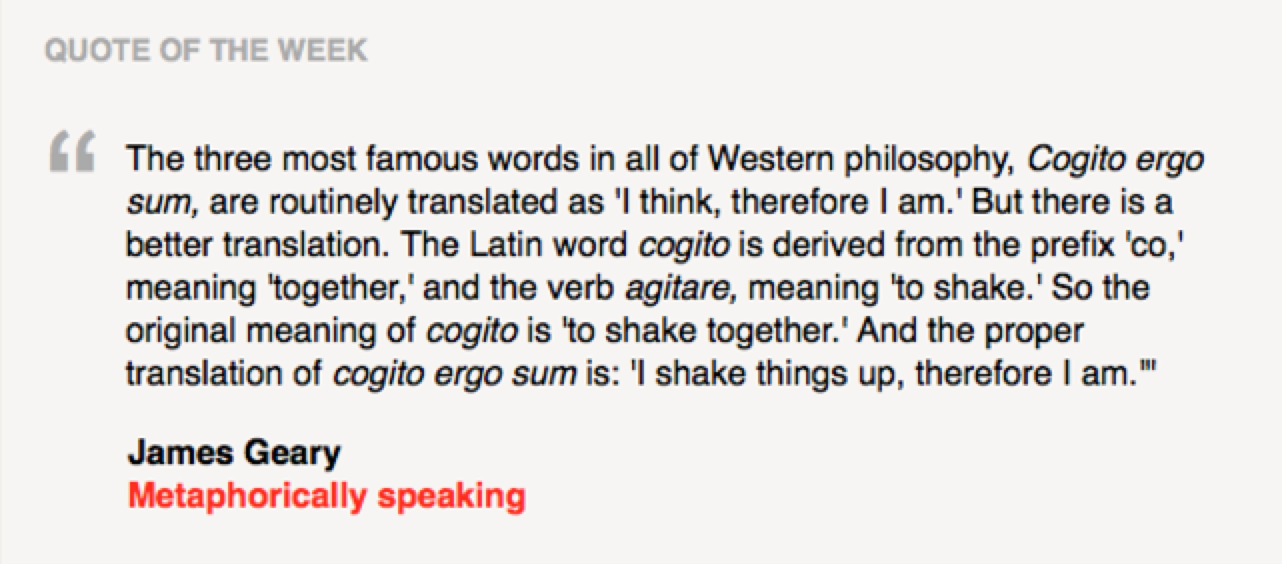Mangled translation – one of my pet peeves
When words threaten to lose their meaning, those of us who care about such things have to be scrupulous about our use of language. Mangled translation has always been one of my pet peeves.
So when I got an email from the smart folks at TED Talks with this in it, I socked it into my idea file for a future blog posts. The future has arrived.

There’s a reason cogito, ergo sum is “routinely translated as ‘I think, therefore I am.'” It’s because that’s what René Descartes meant when he wrote those words.
Funny how that works.
Go back to the source and you’ll find Descartes actually wrote, Dubito, ergo cogito, ergo sum. I doubt, therefore I think, therefore I am.
Geary’s mangled translation relies on an alternative meaning of agitare—one that makes absolutely no sense if you return to the source.
But let’s go back to the original original source—because Descartes wrote and published his Le Discours de la Méthode in French before he translated it into Latin; he wanted his work to reach the widest audience possible, and no one much spoke Latin outside of academia or the church. The French is not as compact, not as bumper sticker-ready as the Latin. But bumper stickers were not in wide use in 1637:
“…si je doute, je pense, et si je pense, je suis.”
If I doubt, I think, and if I think, I am.
Shake things up with mangled translation
James Geary may be peddling mangled translation but I like the point he’s trying to make. Why were we put on this earth if not to shake things up? Here’s how I would rewrite to preserve both Descartes’ intent and Geary’s point:
The three most famous words in all of Western philosophy—Cogito, ergo sum—are routinely translated as “I think, therefore I am.” But it’s possible to read that another way, too. Because the root of the Latin word cogito is the verb agitare—which does indeed mean “to put something in motion” or even to shake. So you might think of cogito, ergo sum as meaning, “I shake things up, therefore I am.” In fact, that’s the meaning I’m going to adopt today. I don’t expect much pushback from Descartes about this; he’s been dead for 367 years.
You get to the same point. But you bring truth along with you. And especially these days, truth should travel with us wherever we go.